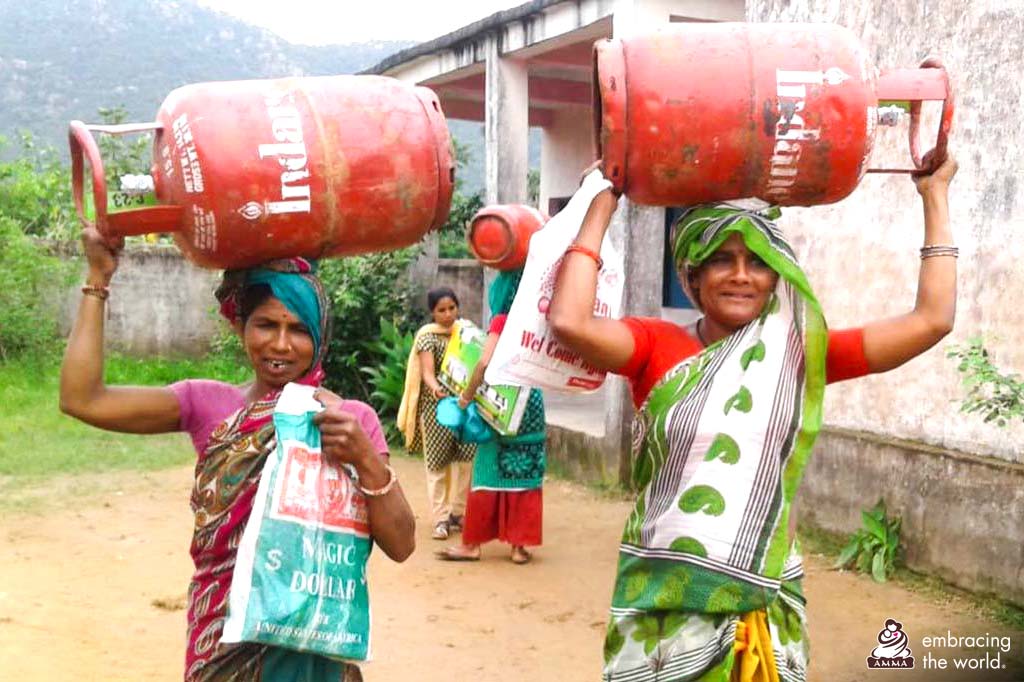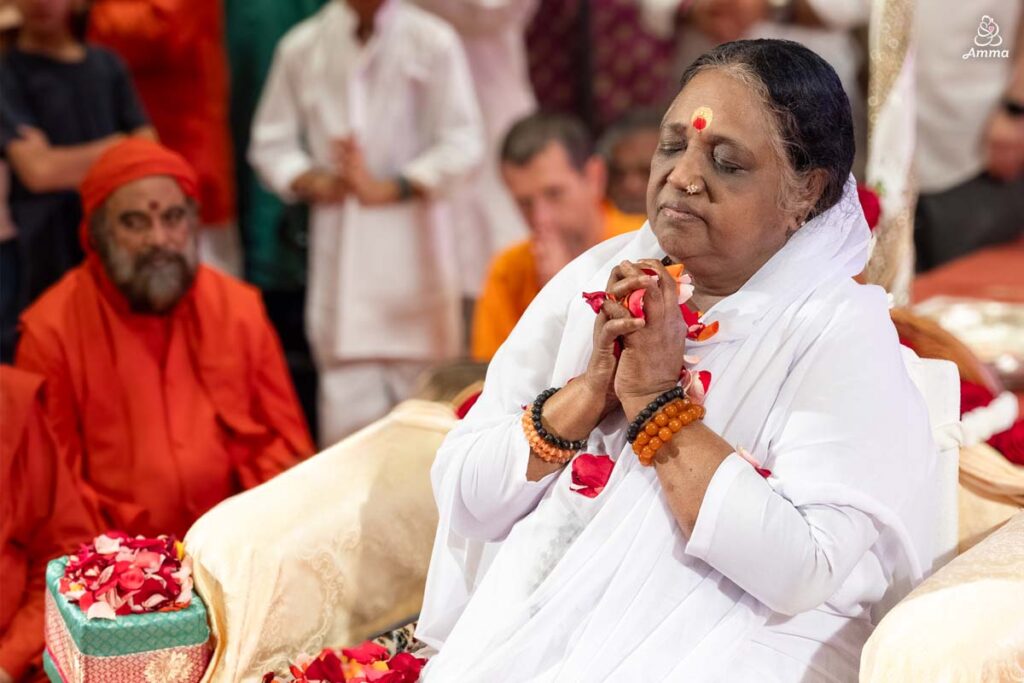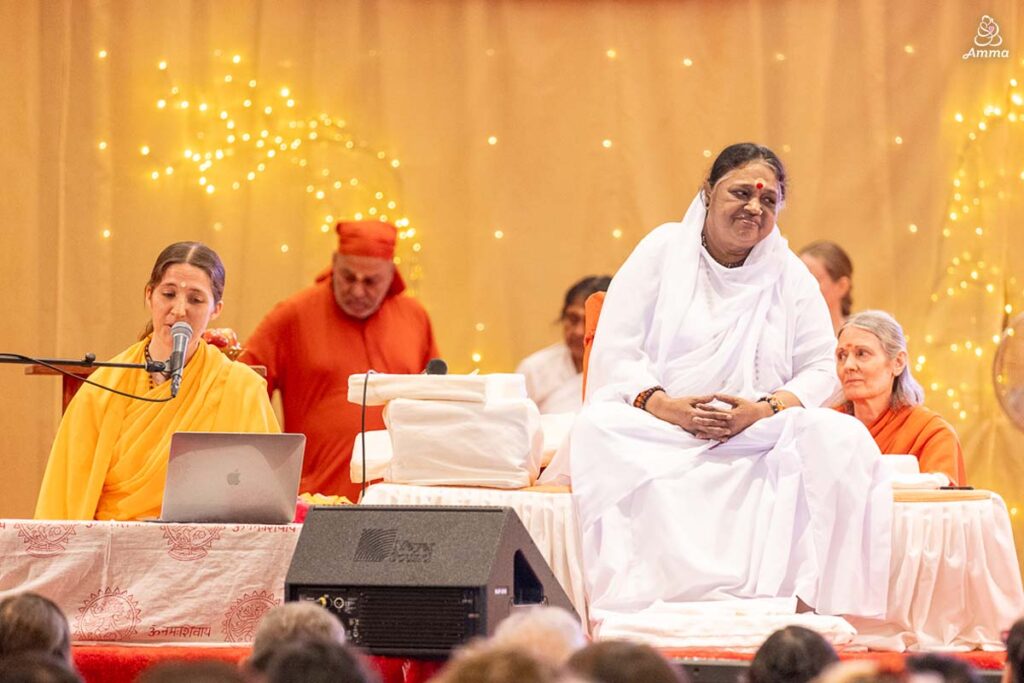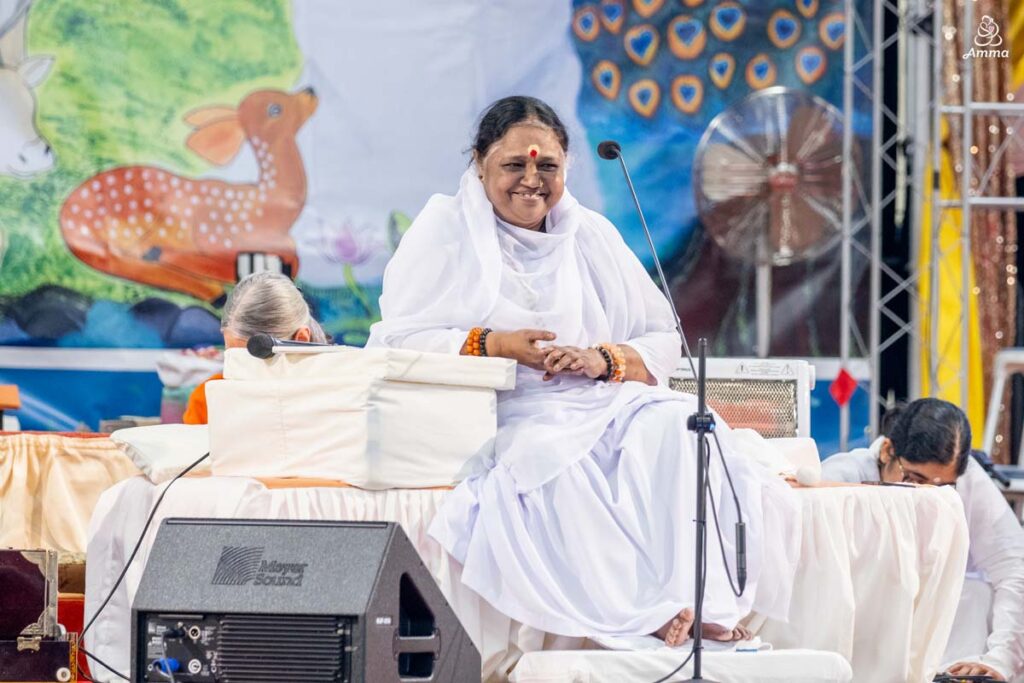People who live in the village of Golamba in Madhya Pradesh, India are undertaking a new and healthier way to access fuel for the needs of their homes. Amrita Vishwa Vidyapeetham in collaboration with Indian Oil Corporation, a state-owned company, held an awareness campaign on how to safely use liquid petroleum gas (LPG).
Delivery of LPG to remote rural areas means a new solution to run kitchen ovens and, in some cases, electrical generators. Information on how to access government grants for marginalized and vulnerable communities was emphasized in the seminar, especially Prime Minister Narendra Modi’s Pradhan Mantri Ujwalla Yojana. The program is mostly for people who are below the poverty line, especially scheduled caste and scheduled tribes (SC/ST).
The traditional system in rural India is to burn wood, dung and other dried plant materials in the chulha–a traditional clay oven. Use of this type of oven is predominant among poor families, but there are some issues with it. The generation of smoke can create tremendous health problems, especially in the lungs. The people running the stoves are usually women with their young children often not far away.
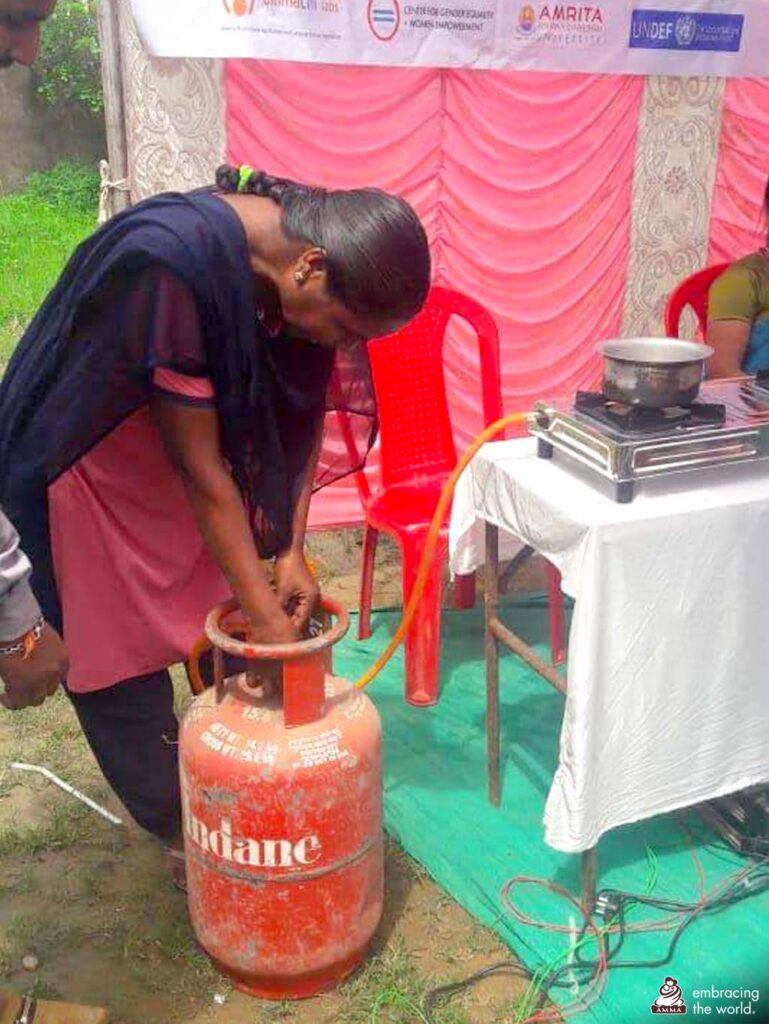
A not-for-profit think tank in India called the Council on Energy, Environment and Water (CEEW) wrote a report called ‘Access to Clean Cooking Energy in India’. It states, “In 2016, the International Energy Agency estimated that of the global total of 3.5 million premature annual deaths from household air pollution, India alone is home to one million.”
Over the past years, a safer model called “the smokeless chulha” was developed to stream smoke through a chimney. However, another issue came to the fore. The time required to maintain the stoves is a task in a long list of daily chores. Already, some of these people do not even have enough to eat. In addition, the need for wood as fuel plays a role in deforestation.
“The amount of time spent on collecting firewood in India suggests that on an average, women spend around 374 hours every year for collection of firewood,” the CEEW report says.
After this, a debate arose about whether or not to begin to provide easy access to the use of LPG. Although it is a fossil fuel, it was determined that until renewable energy sources are more fully developed and widely available, the use of LPG provides an easier solution for marginalized communities.
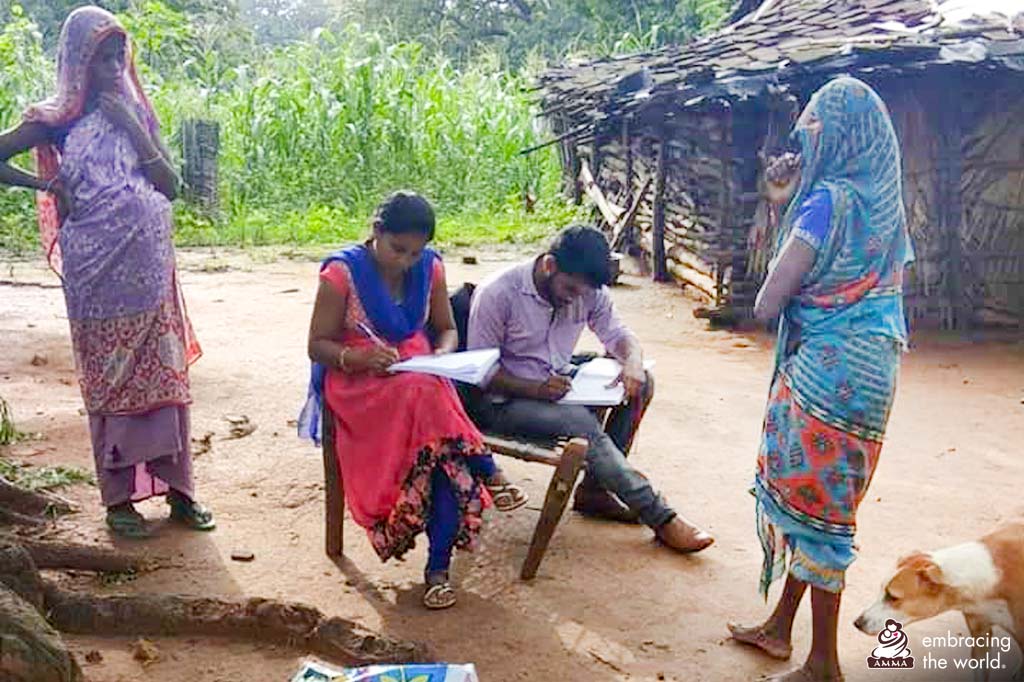
Of course, when it comes to the use of LPG people have concerns about the flammable and explosive risks. Some of the families in Golamba had already taken the LPG connection, but due to fear, not all were using it. However during this campaign, the villagers were given info on safe usage and maintenance. These are practices that are simple to implement. They were also informed about the eligibility criteria for government grants and the documentation required to get the connection.
The information had an effective impact on clearing doubts and apprehensions, and the users gained a new confidence to start with the gas cylinder. This positive response was particularly seen with the women who came in large numbers to attend the information session.
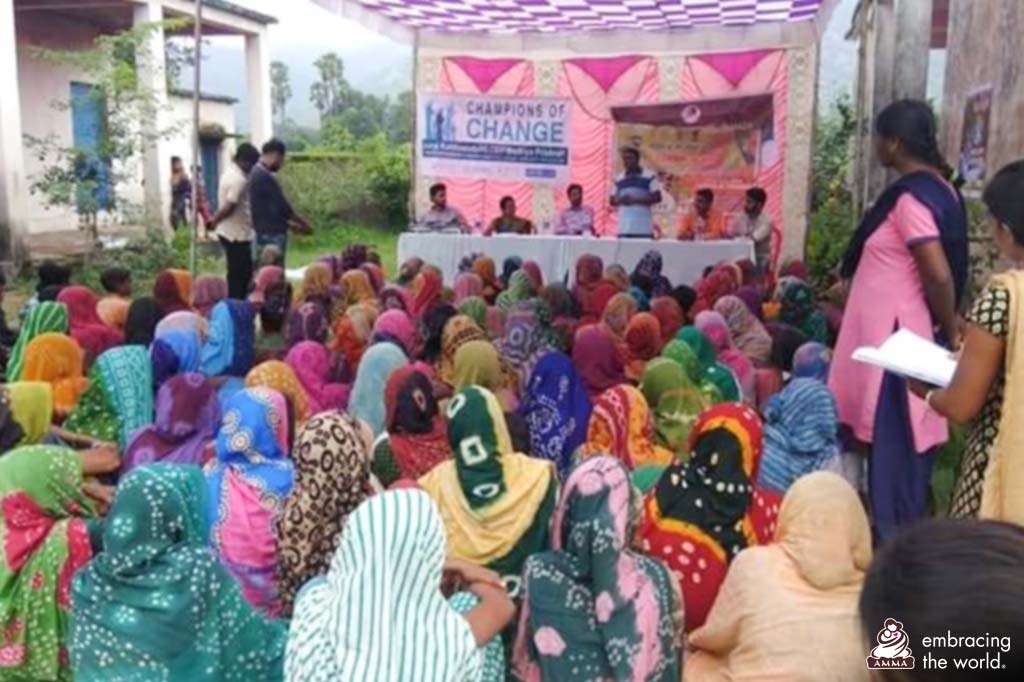
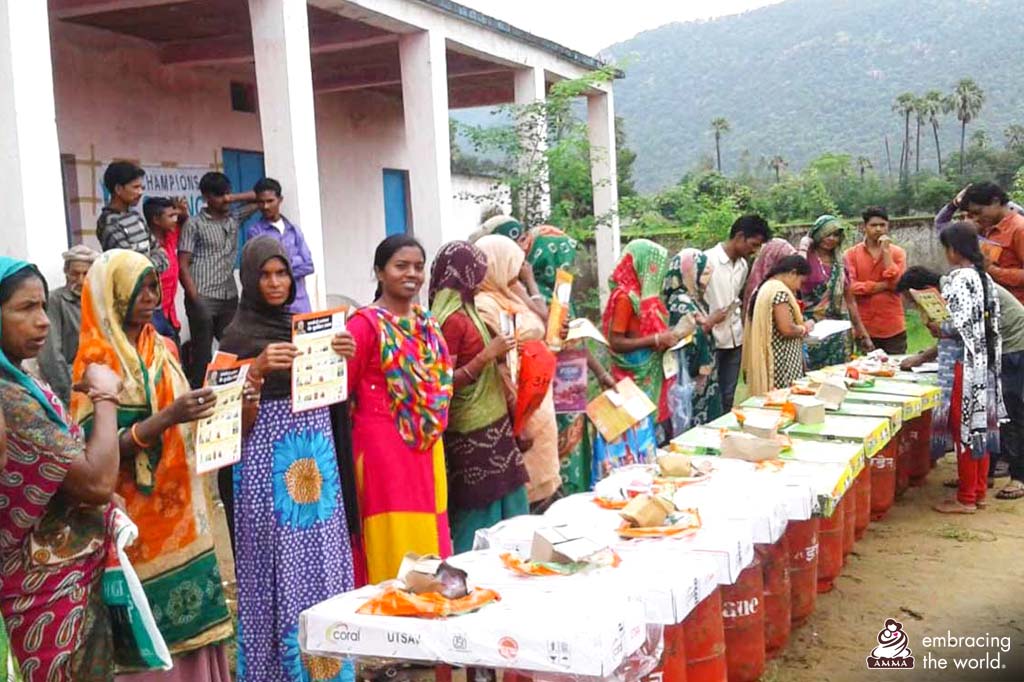
AMMACHI Labs of Amrita Vishwa Vidyapeetham is conducting social empowerment programs in villages across India under the United Nations Democracy Fund (UNDEF). As part of this program, the Indian Oil Corporation team was invited to conduct the awareness campaign in Golamaba. Some people from the neighboring villages of Juna Kathiawada, Muljipura and Havelikheda also attended.
Along with AMMACHI Labs, Amrita SeRVe helped people in Golamba to apply for the grants to install gas stoves and connections. The key person to apply is the woman of the household, when applicable. So far, 30 families have been aided.


